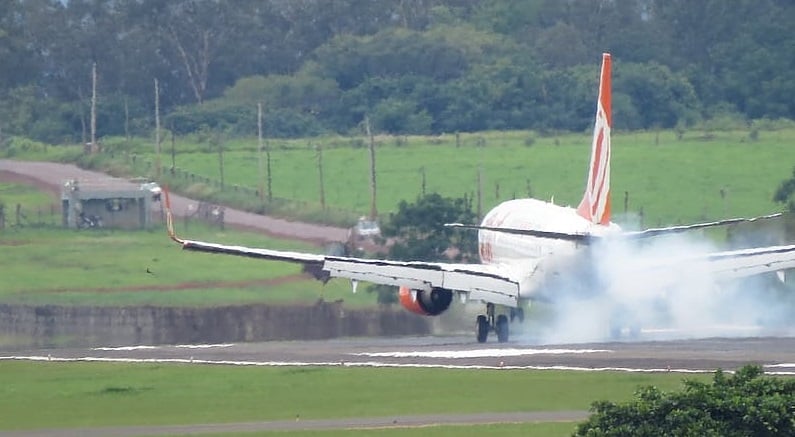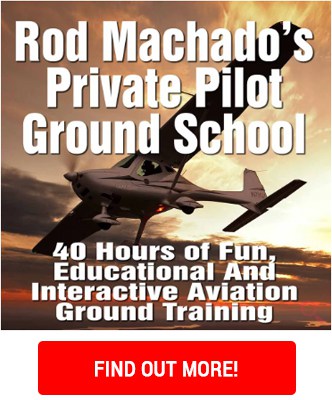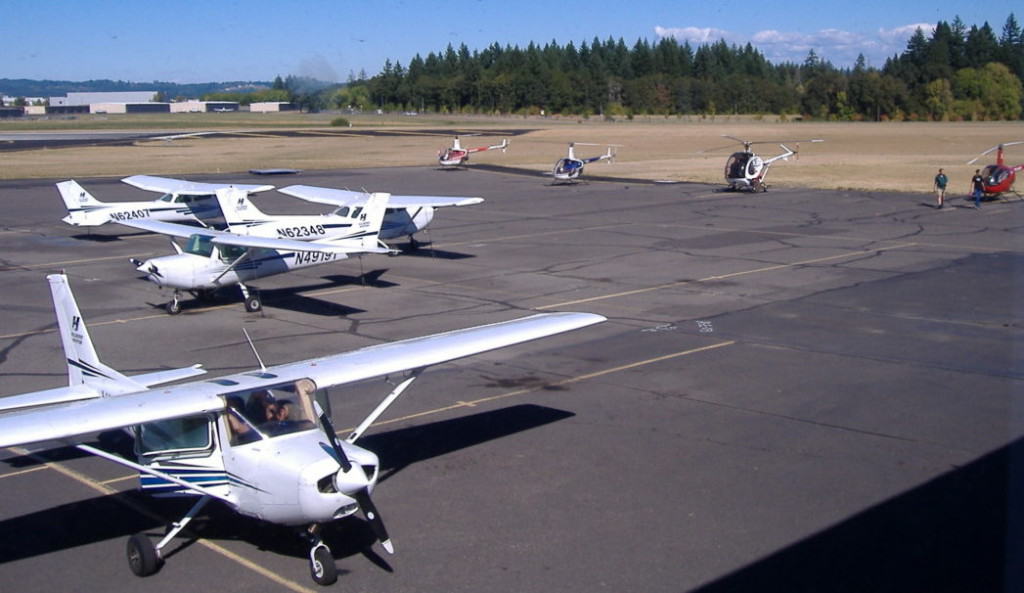How Hard Is It to Become a Pilot

Becoming a pilot is one of the most fulfilling accomplishments any person can do but it is not an easy task for some. There will be times of pure joy, but also times of frustration but the feeling of taking off into the sky by your own hands is one that more people need to experience!
Becoming a pilot is hard work. Flight training, ground school & homework all require full commitment to complete & gain a pilot's license. Each pilot certificate requires different amounts of effort, time & budget to complete. The student's abilities will dictate how difficult they find the training.
During my flight training, I had periods of no progress and times where I just could not fly. If your dream of learning to fly is starting to become a reality then this article will help you understand what is involved with gaining your pilot certificate.
Are All Pilot Certificates Hard to Obtain?
When anyone first begins learning to fly it can seem like they are stood at the foot of the mountain with no discernable way up. The type of pilots certificate they are looking to obtain will dictate how high that mountain is!
On the easier end of becoming a pilot is the Sport Pilot Certificate. Training for this certificate requires the least amount of flight time, no medical examination, and no mandatory ground school. The student only needs to study the appropriate material to pass the written examination. A typical Sport Pilot Certificate is usually completed in around 25-30 hours, costs around $4,000 – $6,000, and can be completed in a few weeks.

On the other end of the scale are those students who enroll into a full Airline Pilot Program. This is an intense, full-time training program that will proceed through structured ground and flight training, many stage checks, written exams, flight tests and can take anywhere from 7-12 months, cost from $70,000 – $90,000, and will take a serious commitment to complete.
No matter the pilot certificate you are looking to obtain the difficulty you may face can vary dramatically to the person standing next to you. Learning to fly can be accomplished by anyone but some may take longer for the skills to reach the required standards or you may require extra studying to try to understand the theory that must be learned to pass the written and oral examinations.
If You Want it Bad Enough, You Will Find a Way to Achieve it!
What is Involved in Learning to Fly?
Learning to fly is not just getting in an aircraft and piloting it around the sky. Theoretical knowledge, practical experience, technical understanding, planning, management, self-assessment, and critical thinking are all part of learning to become a pilot.
There are many areas that a student will need to learn to become a pilot no matter which certificate they are training for. The amount of information and skills they must acquire will increase as the pilot certificates become more professional.
Here are some of the areas that all pilots will need to learn:
Flight Training
Learning how to handle and fly the aircraft in many, many different maneuvers is the primary part of becoming a pilot. Each aircraft type will have its own procedures and limitations on how it should be flown. Flight time consisting of time with an instructor sitting next to you and solo flight time is required and proficiency of each flight maneuver must be learned and demonstrated to the required tolerances for a flight test to be passed.
The larger and more complex the aircraft the more flight training is required this is why when first learning to fly the simplest and cheapest aircraft are used to learn the fundamental flying techniques that can then be built upon as training progresses into the higher certificates.
Most students will find difficulty mastering a particular flight maneuver that will cause them to plateau in the training. This is completely normal and it just requires a little patience to keep practicing the maneuver until it can be flown to meet the applicable standard.
During my helicopter private pilot certificate, I really struggled with autorotations. We just kept practicing and practicing until I figured it out. Each student is different, some may seem to breeze through flight training but struggle to pass the written exams!
Ground School
For many flight students, the ground school or theory side of learning to fly can be the most difficult part of learning to fly by far. Coming into the world of aviation can be a completely new world for most students and the amount of knowledge that must be ingested, understood, and then utilized can be staggering.
The students that I found struggled the most with this part were those that are older and have not been in a school or learning environment for many years or even decades. I had been out of school for 8 years and it took me some serious schedule and mindset changes to be able to set aside the time and area to study. For those students with families and a full-time job this part of learning to fly can be the hardest.
Ground school covers many areas that must be learned:
- Air Law
- Aerodynamics
- Aircraft Technical
- Navigation
- Weather
- Aircraft Limitations & Procedures
- Human Factors
- Crew & Aircraft Management
- Communication
- and many other subjects!
To help pilots pick their way through the mountain on theoretical knowledge there are some fantastic books and online/software-based training programs perfectly tailored to take you step-by-step through the material. I used many of these during my own training and can tell you that without them I would have really struggled!
If you are looking to start flight training then I highly recommend the Private Pilot Ground School Training Course by Rod Machado.
Rod is a highly experienced flying instructor and his training material is excellent, although may appear a little cheesy in the graphics, but the content is perfect.
If you wish to find out more about his course please Click Here.

Communications
Talking to a complete stranger on the aircraft radio terrifies many students and this can be one of the most difficult parts for many students to overcome. I too had this fear during my private pilot certificate as my school was right next to a major international airport, to which we had to talk with. I was petrified every time I had to key the mic!
To overcome my fears, I used a software-based training tool to practice what I had to say and what the calls were supposed to contain, I went on a course ran by an Air Traffic Control Instructor and then the best thing I ever did was to spend an afternoon in the airport's control tower and approach radar control to see how it all worked.
By doing these things my confidence grew, I found out the people on the other end of the radio were human and would not shout at me if I asked for help or told them I was a student pilot. Since that day I have tried to pass on these findings to as many students as I can with great success.
Radio work in an aircraft is a language that must be learned and it is all about knowing what to say, what to expect back, and then practice. To get the practice you can do it while flying and then you can train using a software training tool.
The one I like to recommend is by Plane English. It is an app-based training tool that teaches you how to talk and then allows you to practice your calls over and over again so that next time you get in the aircraft you are a confident talker!
You can find out more information on Plane English HERE
Why Do Pilot's Quit Flight Training?
As you may have figured by now that flight training is hard and takes serious personal commitment, but sometimes a student doesn't make it and there can be several reasons why.
Most student pilots quit flight training due to poor instruction, personal conflict, lack of aircraft availability, lack of motivation, lack of finances, lack of time, medical issues, or have lost the determination to succeed. Some pilots will even complete their training but never fly afterward.
Poor Instruction
Selecting a school and an instructor is a very important step in learning to fly. Personal conflicts can really dampen the fun of learning to fly and having had several instructors that I hated flying with, I can tell you that a little bit of time finding the right person you 'Gel' with in the cockpit will make your training so much easier and fun.
Go and visit each school and talk with the students as to who they like and who they would recommend to fly with. This is a great way to find an instructor, meet them, and see what is your gut impression. I have seen many students quit because they clashed with their instructor and lost the motivation to carry on!
Lack of Aircraft
As a school becomes busier, the demand for aircraft rise. There becomes a point where there is no aircraft available for when you wish to fly. If your time is limited, or you are only available to fly on weekends for example, then this can really slow your progress.

I have personally seen this happen in my flight school and many students left to fly elsewhere or just stopped showing up for their lessons. When looking for a flight school, be sure to check out their aircraft, and again ask the current students about aircraft availability and how they schedule a lesson.
Regular flying helps keep the difficulty factor down and if you begin to plateau or reach a sticking point in your training you need regular access to an aircraft to overcome that issue.
Motivation
Motivation is by far one of the biggest factors in a student completing their training. When times begin to get tough it is the motivation that will keep them on track and push through the lull. There are two types of motivation and I have seen first-hand how each of them work:
- External Motivation – The student is learning to fly because their family are pilots, their family is paying, they think it might be a fun career. Basically, external factors are influencing their decision to go to flight school. Many of these students are the ones who give up once the initial excitement is over.
- Internal Motivation – The student is learning to fly because they have wanted to fly since a child, their dream job is to be a pilot, they love aviation, they are paying for the training themselves. These types of students usually always complete their training. They have the passion to succeed and when they need to put their heads down and work, they do it.
Duration
Flight training can take a long time depending on your availability to train. When training can only be completed once every few weeks the learning curve can be a slow process. I could only fly one hour every second Saturday during my private license and it took me 2.5 years to gain the certificate, but that was the only way I could complete it.
It is much better to do all of your training full-time as your progression will be so much faster. The longer it takes, the harder it becomes and you will spend more time 'getting back up to speed' than actually learning. For students that have irregular and long durations between training flights, it can be easy for them to find an excuse to quit.
Financial
Learning to fly is not cheap! Even a sport pilot certificate is expensive, then what about when you have your wings? Do you have to money to continue training or flying regularly for pleasure? Improper budgeting and planning is one of the major factors to students quitting training because their money runs out. Plan for all of the training you wish to do, then add in some extra!
No students ever complete their flight training in the minimum amount of time the FAA sets forth for its certificates, so be sure to set your budget higher.
To help you get a more accurate budget for your flight training I have created your complete guide to how much your flight training will cost for every FAA pilot license. It is a great resource and I spent a lot of time putting it together to help you and ensure it's accurate. You can check out that guide below:
Cost To Become a Pilot: All the Certificates Compared!
To Finish
There is no doubt about it, learning to fly is hard, challenging but well worth it! Some people will find the training harder than others and some will quit. If learning to fly is something you just have to do then go for it, but be prepared to put in the hours and give it your best shot!
To help you research your journey please take a look at some of the following articles below:
- Can You Legally Fly Without a License? A Pilot Tells How!
- F1 or M1 Flight Training Visa Guide – All You Need To Know!
- Not All Pilots Need a College Degree – I Don't Have One!
- Choosing a Flight School: 9 Awesome Secret Tips From an Instructor!
- Starting Flight School? Essential Gear For Every Pilot

How Hard Is It to Become a Pilot
Source: https://pilotteacher.com/how-hard-is-it-to-become-a-pilot-instructor-tells-all/#:~:text=Becoming%20a%20pilot%20is%20hard,difficult%20they%20find%20the%20training.